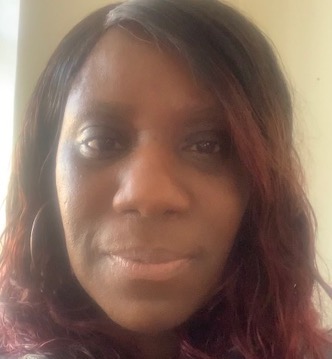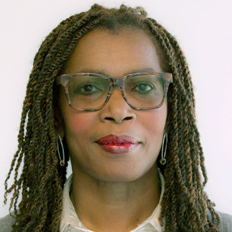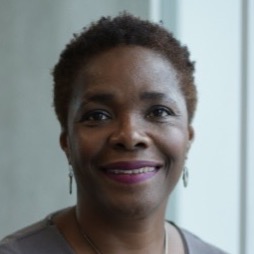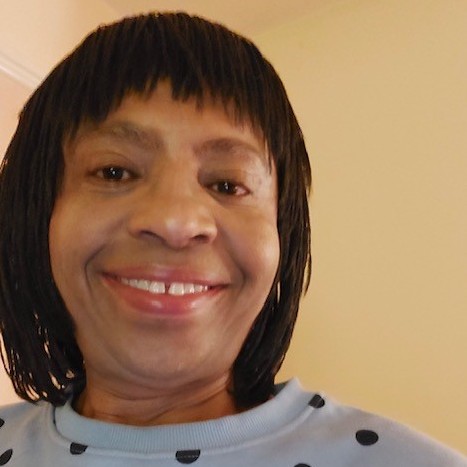
Black Women's Health & Wellbeing Research Network
Steering group
Founder and Chair Dr Jenny Douglas

Jenny Douglas
Jenny Douglas is a Senior Lecturer in health promotion in the Faculty of Wellbeing, Education and Language Studies at The Open University. She is a medical sociologist with a PhD in Women’s Studies from the University of York. She completed her doctoral thesis on cigarette smoking and identity among African-Caribbean young women in contemporary British Society. This research brought together two divergent research traditions: medical public health and health promotion approaches with sociological approaches to researching cigarette smoking. This interdisciplinary research approach brings together sociology, public health and women’s studies. Her commitment to comparative approaches finds expression not only in working across disciplinary and national boundaries, but also across theoretical and methodological traditions. Her research is both varied and wide ranging spanning 30 years on issues of race, health and ethnicity. The key theme unifying her research and activism is intersectionality – exploring how ‘race’, class and gender affect particular aspects of African-Caribbean women’s health. She is an Honorary Member of the Faculty of Public Health and a Director of the UK Public Health Register as well as a Research Affiliate of the Institute for Intersectionality Research and Policy, Simon Fraser University, Vancouver. She is a member of the Royal College of Obstetrics and Gynaecology (RCOG) Race Equality Taskforce and is a Plumer Visiting Research Fellow at St. Anne’s College, University of Oxford.
Members

Dr Geraldine Brown
Geraldine is Assistant Professor at the Centre for Agroecology, Water and Resilience at Coventry University. Her background is in Sociology and Social Policy and the focus of her research includes exploring individual’s and group’s experiences of public policy and practice, community engagement and community action. A key aspect of her work is to consider factors which contribute how individuals and groups experience exclusion or marginalisation and, in so doing identify ways of bringing about ‘change’.
Geraldine takes a community development approach to her work and has undertaken research with ‘pregnant teenagers and young parents’, ‘Black and Minority Ethnic communities’, ‘older people with a mental health need’ and men and women who come to the attention of the criminal justice system. Geraldine’s doctoral thesis focused on understanding the relationship between African Caribbean communities and ‘urban gun crime’.
Geraldine is an experienced researcher and has developed and delivered a range of training to practitioners, community workers and also uses her experience in teaching.

Dr Dawn Edge
Professor Edge is Professor of Mental Health and Inclusivity at the University of Manchester Academic Lead for Equality, Diversity & Inclusion on ‘race’, religion, and belief. Dawn is a member of the Board of Governors at The Health Foundation and Director of the Equality, Diversity and Inclusion Research Unit (EDI-RU) within Greater Manchester Mental Health NHS Trust. Dawn has previously served as a Non-Executive Director of NHS Mental Health Trusts and on the Board of Trustees of community organisations that work with marginalised communities.
Dawn is a health services researcher. A qualitative and mixed-methods specialist, she adopts an overtly intersectional approach to theorising and tackling inequalities in mental healthcare and research participation – specifically, disparities experienced by minoritised and racialised people and other under-served groups such as prisoners. Dawn is committed to using her research to reform policy and practice thus creating more equitable, effective, and accessible care, treatment, and outcomes. She works collaboratively with service users, their families, community members, healthcare professionals, and fellow academics to co-produce and implement psychosocial interventions that improve mental health outcomes for marginalised groups by increasing timely access to culturally informed care and treatment. Currently, Dawn is leading a national Randomised Controlled Trial (RCT) to evaluate Culturally-adapted Family Intervention (CaFI) – a talking treatment co-produced with Sub-Saharan African and Caribbean descended people diagnosed with schizophrenia and related psychoses and their families.

Dr Ann Mitchell
Helena Ann has contributed extensively to mental health nursing as a practitioner, educationalist, and researcher. From early beginnings as a student nurse to her current range of activity. In January 2021, she joined the Royal College of Nursing Mental Health Forum Committee to engage her wealth of knowledge and skills in progressing the aims of that forum. She was subsequently appointed chair of the RCN’s Mental Health Forum newly established ethnic minority subgroup. The remit being to create a space where like-minded ethnic minority individuals come together to generate positive change. The aims of the group are to focus specifically on the care issues ethnic minority people face in mental health care, raise the profile of ethnic minority nursing as a career and promote good mental health care throughout the nursing profession.
As a participatory action researcher, Helena Ann is committed in using this approach to bring about change in ethnic minority communities. During 2019/20 Helena Ann, as principal investigator, received funding from the British Academy to lead a team of researchers in the UK and Guyana. This was to explore, within Guyana, community mental health resiliency and encourage behavioural change within three diverse and culturally complex communities. One community was a refuge for women who had experienced domestic violence. An issue in which she has developed a specific interest. She gave voice to these women by using art and storytelling to capture their experiences.
Helena Ann has maintained links with the British Academy, is a member of various committees including the Association of Guyana Nurses and Allied Professionals. She is currently working with the Guyanese government to review nurse education along with other health related projects. A separate project is to deliver a Guyanese Diaspora Cultural Diversity Conference in June 2022. She currently holds an honorary associate position with The Open University where she is co-supervising a PhD student and is an active member of research groups covering Ageing and Biographical Studies and participatory action research.

Professor Laura Serrant OBE PhD MA BA RGN PGCE Queens Nurse
Professor Laura Serrant OBE is Regional Lead Nurse for health Education England (North East and Yorkshire) and Professor of Community and Public Health Nursing in the Faculty of Health, Psychology and Social Care at Manchester Metropolitan University, UK. Professor Serrant has an extensive experience in national and international health policy development with particular specialist input on racial and ethnic inequalities and cultural safety. It was her work in this area which led to her being awarded an OBE in the Queen's Birthday Honours list 2018 for services to Health Policy.
She is one of the 2017 BBC Expert women and has been recognised with numerous awards and prizes, including Queens Nurse status and Fellowship of the Queens Nursing Institute. In 2014, she was named as one of the top 50 leaders in the UK by The Health Services Journal in three separate categories: Inspirational Women in Healthcare, BME Pioneers and Clinical Leader awards. In October 2019 she was listed in the top 100 most influential Black people in the UK by the Powerlist 2020.

Dr Naomi Anna Watson
Dr Watson is Deputy Associate Dean for teaching excellence, Senior Lecturer and member of the central academic staff in the Faculty of Wellbeing, Education and Language Studies (WELS) at The Open University, UK.
Naomi’s research and scholarship interests span a wide overarching area relating to nursing practice and nursing education, distance education, diversity, ethnicity and health inequalities, with a focus on student experiences, African Caribbean participation and contribution to health care and black women’s healthcare experiences. Her PhD research, on which her monograph is based, explored factors influencing choice of nursing as a career by UK African Caribbean people. She is particularly interested in nursing, health and social care debates about cultural competence, and the extent to which this is understood and experienced by post Windrush African Caribbean Seniors in the UK, and by black families. She has led internally funded projects which have explored issues relating to cultural competence in the healthcare workspace as it affects black African Caribbean Seniors and the role of the Doula in supporting Black women from a culturally competent perspective, during their childbearing years, including pregnancy and childbirth. Naomi’s most recent projects are focussing on student nurses’ experiences as distance learners during the recent pandemic, and its impact on mental health, wellbeing and on the nursing curriculum.
She has researched, written and published in Diversity, Ethnicity and inequalities in health care outcomes, Cultural Competence, Primary Care Nursing, Public Health, , Service User Involvement, Nursing Education and Black Women’s Health and Wellbeing. Her recent monograph is titled ‘here to stay, so deal with it…’ Experiences and Perceptions of Black British African Caribbean People about Nursing Careers. It provides insights into the voices of Black African Caribbean people based on their experiences as students and staff members in the British health care system.
Naomi has practiced clinically as a Registered Nurse, Senior Midwife and Specialist Practitioner, Health Visiting. She is also a practice educator and Registered Nurse Tutor.
Naomi has a keen interest in natural health, wellbeing and healing in diverse communities, specifically BME communities. She supports a number charities, which champion the overall health and wellbeing of BME communities locally, nationally and internationally.
In Memoriam - Dr Nicole Andrews

Dr Nicole Andrews was an active Steering Group Member of the Black Women’s Health & Wellbeing Research Network. She was a sociologist and her research and teaching centred around understanding and challenging health and social care inequities. Dr Andrews specifically worked on issues relating to the under-representation of seldom heard communities in applied health research and; the articulation of research methodologies to engage with and encourage participation in health research. She led the BSc Health and Social Care at Newman University, Birmingham.
A year ago we lost Dr Nicole Andrews to triple negative breast cancer, which is more likely to kill Black women. Nicole is sorely missed she brought her creative energy, research expertise, commitment to improve the health of Black women and her infectious laughter to our meetings and initiatives.
Nicole's research was on health inequalities and to mark the one year anniversary we are posting a blog Nicole wrote for ‘Make it Plain’.